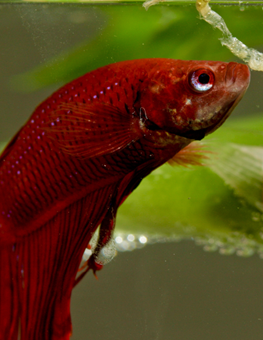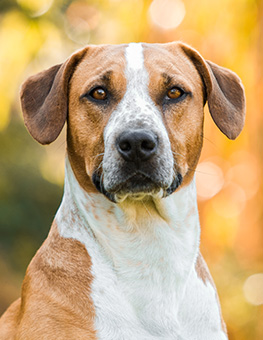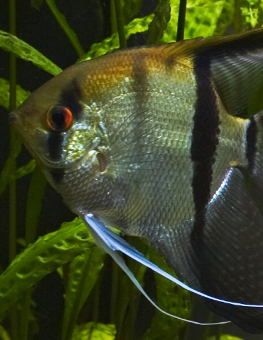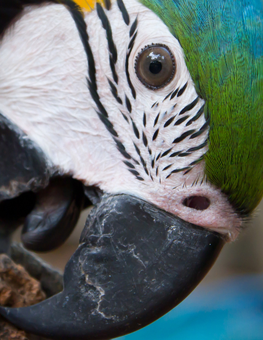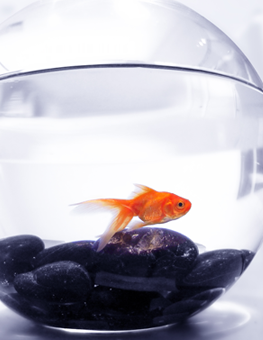A Bird’s Daily Diet
Because of their high metabolism, birds are sensitive to nutritional deficiencies.
In the wild, animals find ways to naturally balance their diet. But in the cage, proper nutrition is up to you. Nutritional deficiencies are a leading cause of disease among birds, so knowing what your animal needs is imperative. Birds require a mixture of dietary protein, fat, carbohydrate, vitamins, and minerals. And they need a lot. Because birds have a high rate of metabolism, they require more food per unit of body weight than larger animals.
Diet essentials
Seeds: A well-balanced diet for most companion birds includes fresh vegetables and fruit, grains, nuts, pellets, and fortified seeds. Unfortified seeds lack the proper nutrition for optimum health. Fortified seeds contain additional calcium and other minerals, vitamins, and digestive enzymes that go a long way toward earning your bird an excellent check up.
Grit: Most pet birds, if fed a proper diet, do not require grit. Grit is thought to aid digestion and is available in two forms-soluble and insoluble. A cuttlebone is a form of soluble grit. This type is dissolved by acids in the digestive system. Consequently, it does not gather in the gizzard and help digestion, but rather serves as a source of calcium and other minerals. Insoluble grit is typically available as silica. This type remains in the gizzard. Consult your veterinarian to determine if your bird needs grit and what type is best.
The importance of water
Water maintenance is essential. Most cages purchased from pet shops have food and water hoppers. Birds can dehydrate very easily, especially when stressed, so keep those hoppers full at all times.
Consider a water bottle: Hoppers are great for smaller birds such as canaries and finches, but water bottles are better for larger birds such as cockatiels, lovebirds, parakeets, and parrots. Although it's more difficult, many people have also trained smaller birds such as canaries and finches to use a water bottle. Whether big or small, a glass water bottle is the best bet since they are more hygienic and dishwasher safe.
Refresh and clean it regularly: Having a bottle doesn't mean you can stop paying attention. Some birds learn they can take a shower with the bottle (thus using all the water) while others seem to enjoy sticking seeds in the dispenser (thus blocking the water flow). When this kind of trouble-making happens, move the water bottle to a new location or add a second water bottle on the other side of the cage to correct the behavior. Clean and refill the bottle regularly to minimize bacterial growth.




